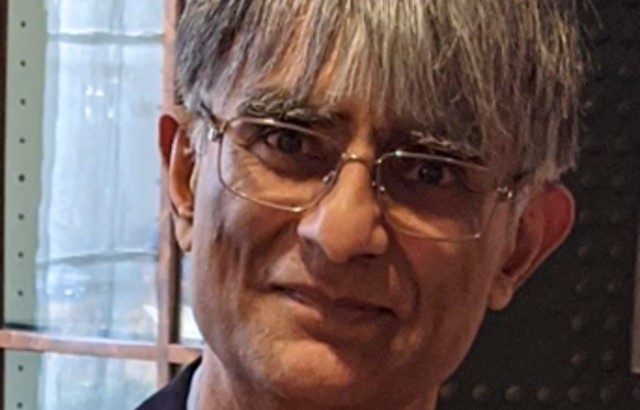A Q&A with Professor Sir Harry Bhadeshia: “I discovered that steel is complicated.”
Professor Sir Harry Bhadeshia will deliver his inaugural lecture at Queen Mary Presents on 8 February 2023.

Queen Mary Presents is a new programme which ensures that everyone, everywhere, can be part of Queen Mary’s discussions. From question and answer sessions, to panel discussions and podcasts, we aim to provide thrilling events and conversations.
Professor Sir Harry Bhadeshia joined our flourishing community of scholars at Queen Mary in February 2022. He is a hard-core metallurgist, working in the School of Engineering and Materials Science, where he undertakes research and teaching in the hope of making a small contribution to its goals of creating and disseminating knowledge. In this Q&A, Professor Sir Harry shares some of this thoughts about his inaugural lecture and his career to date.
What is the subject of your inaugural lecture? I’ll be speaking as part of the Night of Science and Engineering, an evening hosted by Queen Mary’s Faculty of Science and Engineering in celebration of our creativity.
My talk ‘Steeling the show – creating exceptional alloys of iron’ will illustrate the importance of the choreography of atoms in solid iron, when a change in atomic arrangement is induced. And then, how this determines some amazing properties which make the material applicable in extreme circumstances where nothing else will do.
I will delve into the creation of new physical forms, such as the world’s first bulk, nanostructured alloy that can be made large in all dimensions and which has found some interesting applications.
It’s a fascinating field of research and development that I’m thrilled to be able to share with people at this landmark event.
Why should people be interested in steel? As a material why does it matter to the modern world? Just take steel out of your life and think of the consequences.
Is steel good for the environment? While steel is recyclable, it’s production is polluting, so we must dramatically cut down its use. This can be achieved by creating better steels. For anyone interested, I shall be publishing a book in the near future that explains how to do this. Watch this space.
What do you consider to be your biggest achievement to date? In the context of education, the very many students I can claim to have nurtured, who now are changing the world for the better. I know this because I keep in touch with them.
Growing up, did you always want to be a scientist? That is difficult to answer. I certainly had access to a chemistry set, to a plastic skeleton, a sophisticated Meccano set and to electronics. But at that age, one does not think about the future. And then we emigrated to the U.K. from Kenya - and I became a technician in a metallurgy laboratory of the British Oxygen Company (BOC), earning £8 per week.
And what interested you about steel and metals? BOC sponsored me for a degree in metallurgy at the City of London Polytechnic. Professor Robert Honeycombe was the external examiner, and he encouraged me to join his Steels Group for research at Cambridge University. I discovered that steel is complicated. And I saw that as an inspiring challenge for my future career.
You have a global career – from Wuhan to India to here in the UK. What interests you about that? All of my international connections come from steel. I had many Indian Ph.D. students sponsored by the Cambridge Commonwealth Trust - one of them is now in a team of six science advisors to the President of the USA. Tata Steel in India generously endowed my Chair at Cambridge University, and I have spent a lot of time at their Jamshedpur laboratories. I had a huge project in South Korea, with the responsibility of creating a computational metallurgy laboratory. I spent three months each year for ten years on that work which reaped enormous benefits in terms of research. Wuhan University of Science and Technology is heavily involved in steel research, so I was welcomed there over many years. But the first major international collaboration was with Japan, the atomic arrangements, design and control project, some 50 man-years of research. It’s a fascinating field of work that has taken me – and others – far.
Do you think the UK has done enough to champion STEM subjects? There are in my opinion no formal barriers to anyone studying anything. And the educational system in the UK is incredibly versatile. For example, the Open University has done much to allow thousands who may have missed opportunities to enter higher education, and to achieve outstanding qualifications. And of course, Queen Mary’s own vision is to open the doors of opportunity, where students and staff can reach their full potential and are proud to be part of the University.
One issue that needs correction is the realisation that industry needs to exist to provide jobs for STEM graduates.
And what advice would you give to someone starting their graduate studies in Science and Engineering? It is not for me to give advice, but doing something that really fascinates you so that the focus is not simply on passing examinations, must be the right approach. And graduate studies require dedication.
Related items

27 June 2025

